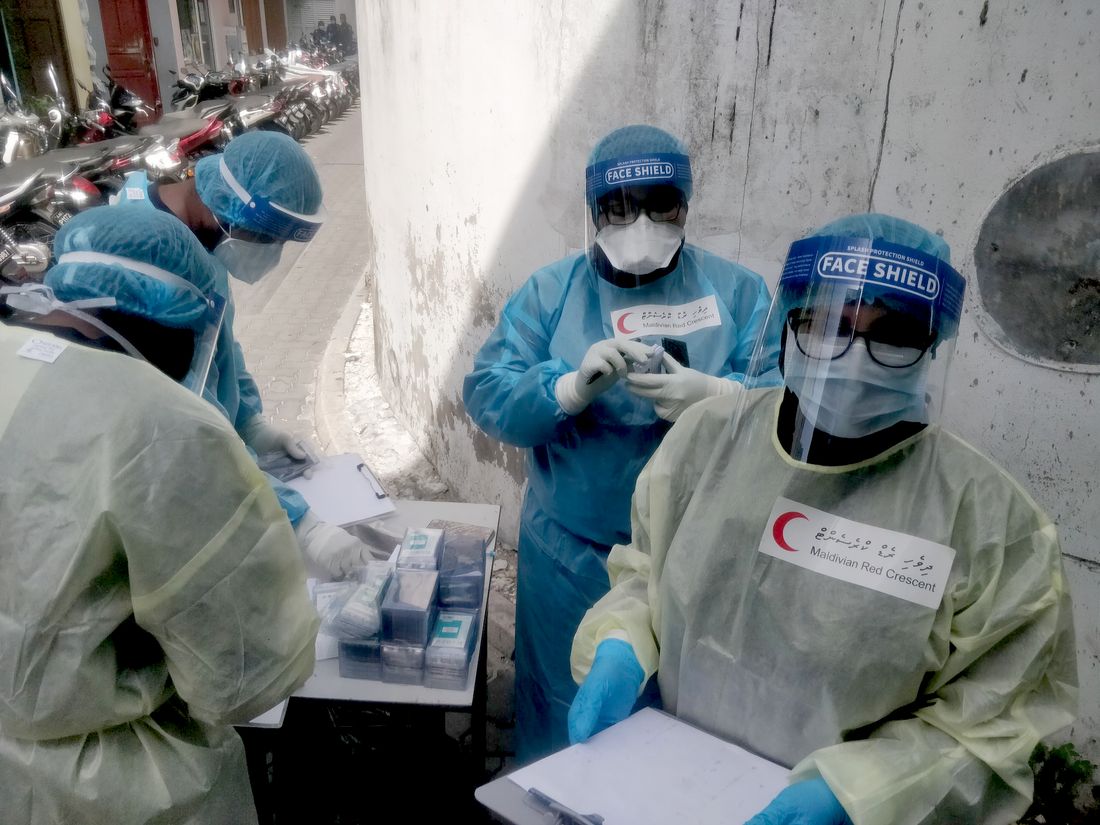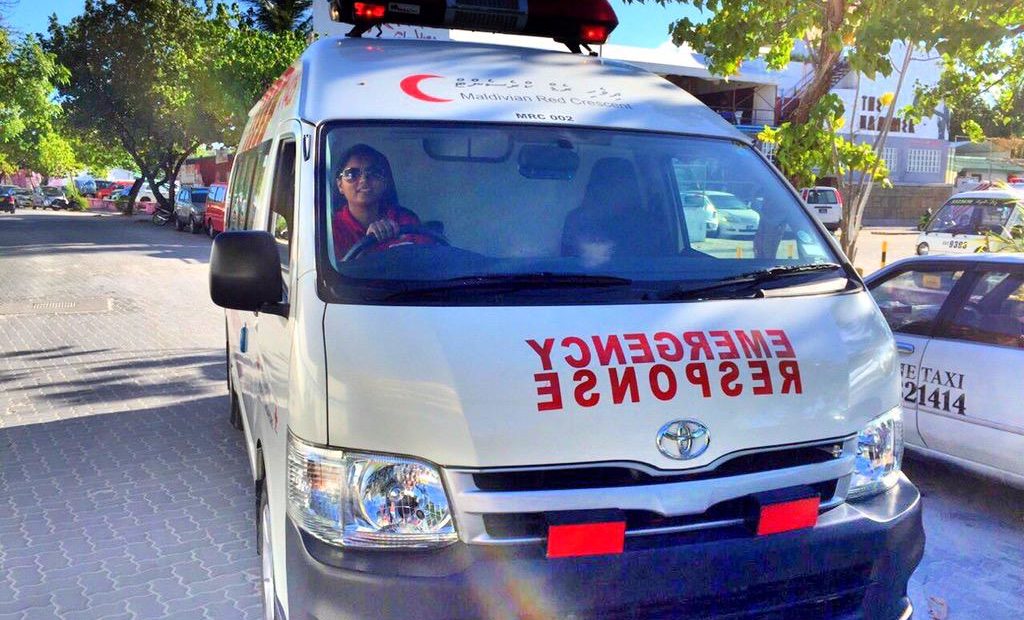As the Maldivian Red Crescent marks its 11th year of humanitarian work, we celebrate all the ways that the journey has been made fulfilling – it is how we have been able to be there for people when they need us most, how our volunteers embody and uphold the spirit of humanity, how we have been able to partner and collaborate with the relevant public authorities and agencies across other sectors through our auxiliary role to create positive impact, and it is how we have been able to build trusted relationships within communities so that we are able to impartially, neutrally, and independently provide humanitarian services.
The 11 years have been filled with many successes achieved through collaborative spirit, milestones, challenges overcome with guidance, and many lessons. Throughout the MRC’s journey, it has received the unwavering support of the wider Red Cross Red Crescent Movement. The International Federation of Red Cross and Red Crescent Societies (IFRC) and the International Committee of the Red Cross (ICRC) have been there for the National Society through the various stages that led up to the formation — from recognition by the ICRC and being admitted into the Federation by the IFRC to the setting up and implementation of the first ever community-based programmes that were funded by various other National Societies. The MRC has also been guided to navigate turbulent and difficult times the country faced so that the National Society could position itself and emerge as an organization that is trustworthy and one that embodies the tenets of humanitarian work.

The MRC works closely with public authorities during floods and having trained volunteers is critical when it comes to mobilizing communities. ©MRC
Unique vulnerabilities and challenges
With 10 Branches and the corresponding 20 Units across atolls of the scattered island nation, the work to build resilience is challenging but essential. The Maldives, with its low-lying islands, barely rising a couple of metres above sea level, is a country that is bearing the relentless brunt of the climate crisis and all its induced effects. In addition to this vulnerability, the Maldives is a country that is steadily growing – the population is increasing, the economy has been expanding, and urbanization has been taking place at a rapid speed. All of this requires adapting to a changing environment – one that brings with it evolving vulnerabilities, demographics, and the unique challenges and needs that come with it. The MRC’s work to build resilience brings together the inextricably linked areas of development work, humanitarian work, and climate action to create communities that are better able to prepare for, cope with, and overcome disasters and emergencies.
Much of the work to create resilient communities begins in and around the communities. Members and volunteers that make up MRC’s branches and units are part of community-based teams that have capacities in various areas ranging from emergency response, first aid, psychosocial support, violence prevention, and epidemic control. The National Society works on enhancing existing skills, adding to knowledge that is already there and helping to build and strengthen the necessary networks in island or atoll levels so that institutions across sectors can come together and work better. This is also in alignment with the efforts towards effective decentralization of operations and developing the autonomy of the branches. Each atoll or island has its own unique vulnerabilities and challenges, and it is those who live there who understand it best. The MRC’s representation in atolls carry out and work through the auxiliary role, through the regions, for better outreach and impact.

The Maldivian Red Crescent has been at the frontline of the COVID-19 response in the country. ©MRC
Access to the communities
At the national level, the MRC, in its legal framework, is tasked with the mandated responsibilities of a first responder, and disaster management. The National Society works in emergencies, primarily to help meet the humanitarian needs of those who are affected during crises, but it also works out of emergencies in many crucial areas such as promoting health and wellbeing, facilitating resilience-based planning, social inclusion, and promoting humanitarian values and volunteer work. The National Society has come far in asserting its role and finding its space. As a young organization, with a unique role and mandate, it took many experiences, lessons, discussions and understanding with agencies across sectors to arrive where we are today. Humanitarian diplomacy played a key role to advocate and lobby for relevant policy-level changes, to be part of national-level processes, and to be recognized as a reliable organization that has access to the communities and can reach people in need.
Over the years, the National Society has taken of care of people who live in precarious and vulnerable conditions. One marginalized group the MRC has catered to is the migrants, regardless of their status or background. A significant portion of the migrant workers who live in the Maldives are reported to be undocumented or in irregular situations – adding to a host of other socioeconomic challenges faced while contending with serious human rights violations around not having safe working environments, regular wages, or decent living conditions. This year, with the onset and spread of COVID-19, people who were already living on the fringes have been disproportionately affected. The MRC, through its work to better prepare communities for emergencies and disasters, and during response and recovery, prioritizes the inclusion of the needs of such populations and those affected in its humanitarian work. Whether it is through better risk communications and community engagement to enhance access to life-saving information, through the inclusion and participation of migrants as volunteers in the work that is done, by bridging capacities, and through lobbying and advocating with the relevant authorities, the MRC remains and will continue to remain steadfast in our humanitarian work, to ensure that nobody is left behind. The protection of human rights in peacetime is important to safeguard the same during crises.

The MRC volunteers lead from the front to disseminate vital information and distribute essential relief to the communities. ©MRC
Volunteers’ integral role
We are able to work the way to do and create positive impacts with the help of many. Belonging to a global family such as the Red Cross Red Crescent Movement, the biggest humanitarian network on Earth, allows us to learn from, rely on, and be inspired by National Societies not just regionally, but across the world. Nationally, we are able to fulfil our roles with the collaboration of relevant public authorities and other agencies in similar lines of work and to provide support during times of need and to strengthen these existing partnerships. Our work across the country reaches and resonates with people because of those who are at the heart of it – our volunteers. Volunteers embody and uphold the indomitable spirit of humanity, and make up an integral part of who we are.
We are deeply appreciative and humbled when we look back to how far we have come, while we also look forward to the work ahead. Thank you to everyone who has been part of our journey!


